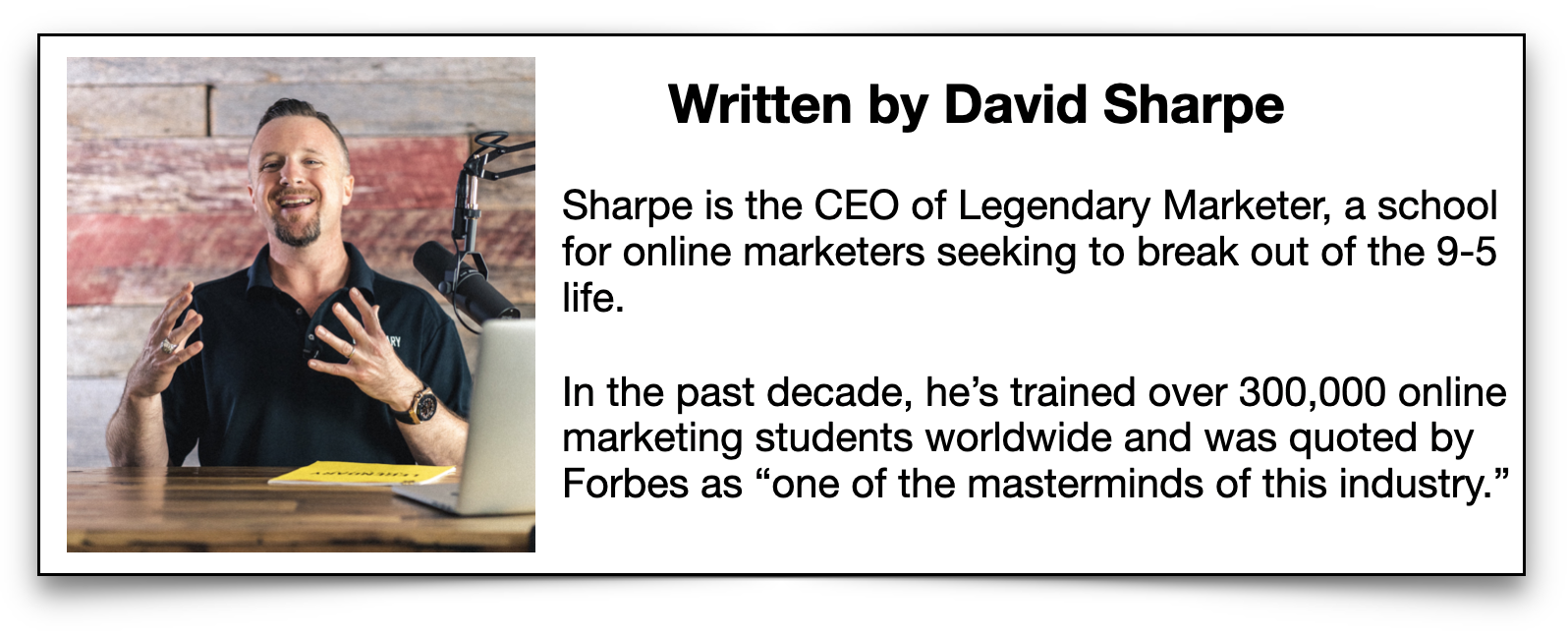
In 1999, Google handled over one billion searches per year. In 2016, while not giving out specific stats, they claimed they're now handling over two trillion searches per year.
Globally speaking, there are over 1.6 billion websites (and counting). That can make getting ranked on Google seem a bit more daunting.
If you're looking how to rank on Google, you want to know how long it takes and what steps are involved. And Legendary Marketer can help.
Keep reading to learn how all about how to rank in Google.
How to Rank on Google Depends on a Variety of Factors
How long does it take to rank in Google?
If you're expecting to build a new website and immediately rank high on a Google search, you will be disappointed. How long it takes often depends on how competitive your industry is and how popular the keywords you use are.
And there are other factors that Google uses such as the strength of your website and even the skills and the budget amount that went into building your website.
Ranking in Google should be viewed as a process. It's also important to understand which websites are most likely to appear at the top of Google's ranking.
The Google Ranking Process
When someone types keywords into Google, the pages they receive are selected from the index based on how well they match up. And there's no exact formula that guarantees your website ends up at the top of searches.
One frustrating part is that the formula Google uses to rank websites is always changing. And they don't always openly share what changes they've made with the public.
That makes for a bit of a guessing game. However, these specific factors definitely play a role in getting your site ranked higher:
Content Quality
Google bots identify certain characteristics such as original content, the length, (and quality) of posts, and how often new content is published. One way to boost your site in the rankings is to keep adding new, original, high-quality content to your site.
The content should be relevant to your website. Google wants to ensure its customers that the sites that rank highest are providing the most trustworthy and reliable content possible.
Clean Domain
While it may seem tempting to try to cheat the system by purchasing inbound links or keyword stuffing, it's only a matter of time before Google catches on and penalizes your site. And it's a lengthy process to gain back their trust.
Look for high-quality links to add to your site. Avoid spammy links or any link that just isn't appropriate for the content you're adding.
Do things the right way and you'll notice positive results you and your customers can rely on. And keep things clean. Google is not a huge fan of inappropriate language or images.
Domain Age
Google strives to provides its customers with quality. Therefore, web domains that are less than six months old are considered less reliable or trustworthy than older, already verified sites.
Over time, as your site proves to be a safe site for people to visit, your site begins rising in the rankings. Just like you as a customer feel more comfortable using a company that's been around for a while rather than one that's just popped up, the same is true in on the internet.
Error-Free Website
Many people don't realize how minor mistakes can work against them, especially when they're trying to rank on Google. Mistakes such as slow loading sites, duplicate content, and broken links can force Google to penalize your site by ranking you lower.
If the errors are really bad, such as plagiarism, you may find your website is completely missing from the ranks. And it takes a while for you to get back into Google's good graces.
Make sure you get your website audited at least once a year to check for errors. Then immediately fix them.
Keyword Competition
Keywords and/or phrases that are used more often are considered more competitive. More established sites have already been using the most popular words and therefore those phrases have more merit on their sites.
Newer sites shouldn't bother to compete for keywords with more established sites. Instead, it's smarter to build rankings and trust by using keywords with lower levels of competition.
Once you've built up trust, you can start using the more popular keywords.
Length of Posts
In terms of the search index, the longer the posts, the more credible Google views your website. SEO content posts should never have fewer than 300 words in order to take advantage of positive ranking.
But, Google prefers longer posts. Posts ranging between 1,000 and 3,000 words tend to perform even better.
That's because Google thinks that a longer post means that your website is more of an authority on the subject matter you're writing about. The more authoritative a website looks to Google, the higher the ranking.
Original Content
Obviously, placing plagiarized content on your site for the sake of having content will work against you. Google will definitely penalize you for doing it.
But it's also not okay to write duplicate content. And Googe bots can literally index your site in seconds while cross-referencing all of its content with every other site in the search index at the same time.
You can't outsmart Google's bots so don't bother trying. Hire a professional writing service if you're not good at developing content on your own. And use internal links when you want to back up information without resorting to using duplicate content.
SEO
Search Engine Optimization (SEO) works to help make your website more visible to Google bots and other indexing programs. The keywords, titles, headers, and ALT image texts you use all are a part of effective SEO.
SEO works to help organically boost your site to the top of the rankings. However, there is an art form for doing it correctly.
You may want to consider hiring professionals who specialize in SEO to help you out. Ranking higher on Google within less than a year is possible but only if you hire an SEO professional who has the time, knowledge, and budget to do it the right way.
How Long it Takes for SEO Efforts to Work
How long does it take for SEO to work? Most experts will tell you it takes between four and six months to start seeing actual results.
However, that's just the beginning and SEO is a marathon, not a sprint. Done correctly, you should see even better results after 12 months than you do in only six months.
Timeliness of Content
Google loves relevant content. Posts and content on current and breaking news rank higher in searches than those written about non-time-sensitive topics.
One way to get around that issue is to write articles on topics that are likely to stay relevant for a long time. However, it's also smart to write about topics that are also current event related on a regular basis as well.
Aim to add at least two or three new posts to your site each week. In most cases, the new content will be indexed, crawled and added to Google's search index almost immediately.
Quality External Reference Links
Always add high-quality external references links to your site. Make sure they're from legitimate sources.
Not only will your customers trust you more, but Google loves quality ranking and it will improve your rankings on their search index. To get quality backlinks, always post useful, relevant, and quality content.
The higher the quality of information you share on your site, the more likely people will use and share it with others. An SEO expert can help you create high-quality content that people can't resist sharing with everyone.
Tackling Negative Google Results
The one thing no website owner wants to content with is negative Google results. Maybe someone left a negative comment on your Google Business Listing.
Perhaps someone wrote a blog post that reflects poorly on your company. That could mean that all your hard work to boost your website in the rankings is all for nothing.
Steps to Handle Negative Google Results
Fortunately, there are steps to take to push down the negative results so that the positive results rank higher such as:
- Create a Wikipedia page
- Own New Domains
- Create new pages with target keywords
- Create an app
- Set up social profiles
- Optimize website site links
Also, activate a Google alert so that you'll receive a notification whenever your website's mentioned anywhere else. That way, you can use good mentions to help build up credibility.
And you can immediately take steps to handle or eliminate any negative online comments.
Watch Your Expectations
If you hire a marketing company to help you improve your site's online rankings and they tell you to expect immediate results, find another company. Even if you're doing it yourself, you should have reasonable expectations.
While you should expect to see results within six months, this isn't a sprint.
And these efforts aren't something you can do once and then expect to keep reaping the rewards. Ranking higher is an ongoing process that never ends.
Learn How to Rank In Google Yourself
Now that you know how to rank on Google, it's time to get started. Remember it's an ongoing process that you'll need to stay on top of.
It's also an ongoing educational process. The more you understand what you're doing, the more successful you'll be.
If you enjoyed this article on how to rank in Google, and want to learn how to match this powerful marketing skill with more money, you might want to learn how to earn high-ticket commissions marketing valuable products people already want to buy.







